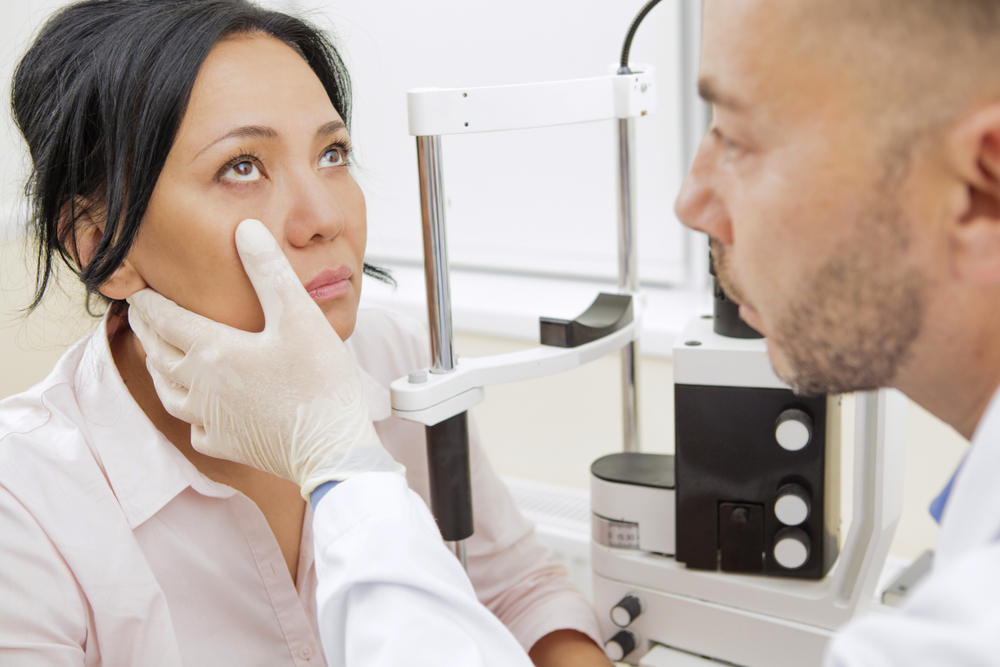Contents:
Medical Video: Epstein Barr Virus (EBV) Diagnosis and Testing
Definition
What is a monospot?
The mononucleosis test is a blood test to look for antibodies that show mononucleosis (mono), which is usually caused by the Epstein-Barr virus (EBV). These antibodies are made by the body's immune system to fight infection.
The Monospot test (heterophil test) is a rapid scanning test to detect the type of antibody (heterophil antibody) that is formed during certain infections. Blood samples are placed on a microscope slide and mixed with other substances. If there are heterophilic antibodies, the blood will clot. These results usually indicate a mono infection. monospot testing can usually detect antibodies 2-9 weeks after a person is infected. It is usually not used to diagnose mono which began more than 6 months earlier.
When do I have to take the monospot test?
A mono test is needed when a person, especially when a teenager or adult, is diagnosed with symptoms of mononucleosis infection by a doctor. Sometimes people are confused about distinguishing symptoms from cold or flu symptoms. Some of the more common symptoms of mono include:
- fever
- headache
- sore throat
- swollen glands in the neck and / or armpit
- sustained fatigue or fatigue
Some people may experience additional symptoms such as:
- stomach ache
- enlarged liver and / or spleen
- rash
Tests can be repeated when the initial results are negative but mono suspicion remains high.
Prevention & warning
What should I know before undergoing the monospot?
The mono test is fast and easy to do, but specifically for heterophil antibodies, not EBV. This test also shows positive results in people with lymphoma, systemic lupus erythematosus (lupus), and some types of digestive cancer, although it is not used as a diagnostic or scanning tool for these conditions.
When the mono test is negative and / or the doctor wants to get more information about the existence and status of EBV infection, the doctor will do one or more of a combination of EBV antibodies. This test can show whether a person is susceptible to EBV, has a new infection, has had EBV infection in the past, or has an activated EBV infection.
Heterophilic antibodies decrease after the fourth week of the disease, and the mono test will become negative because the infection has healed.
Process
What should I do before undergoing the monospot?
There is no special preparation needed. Discuss with your doctor about all your concerns about the need for a test, the risks, how it will be done, or what the results will be.
What is the usual process for testing monospots?
The monospot test is performed on small samples of blood taken from your fingertips or from veins.
For finger samples, professional health personnel will take samples by:
- clean your hands with soap and warm water or alcohol cotton
- massage your hands without touching the puncture area.
- pierce the skin on the side of your middle finger or ring finger with a small tool called a lancet
- wiping blood drops first
- placing a small tube called a capillary tube in the puncture area and collecting a small amount of blood
- put gauze or cotton in the puncture area when the tube is released
- put pressure on the area and then put on a bandage
What should I do after taking the monospot test?
You can remove the bandage and cotton for about 20 to 30 minutes. You will be given a date / time to get your test results. Your doctor will explain the test results that matter to you. You must follow the instructions from your doctor.
Explanation of Test Results
What do the test results mean?
The monospot test results are usually available within 1 hour.
Normal (negative): Blood samples do not form clots (no heterophil antibodies are detected).
Abnormal (positive): There is a clot in the blood sample (heterophil antibodies are detected). If there are clots in the blood sample, you may have mono.
Monospot during the second or third week of the disease makes the diagnosis of mononucleosis infection very unlikely, but during the first week of illness, the test may show false negative results. If necessary, undergo further testing for specific antibodies to the Epstein-Barr Virus (EBV serology). Components of EBV serology include EBV IgM (usually showing new infections) and EBV IgG (usually indicating previous infection).
Hello Health Group does not provide medical advice, diagnosis or treatment.











